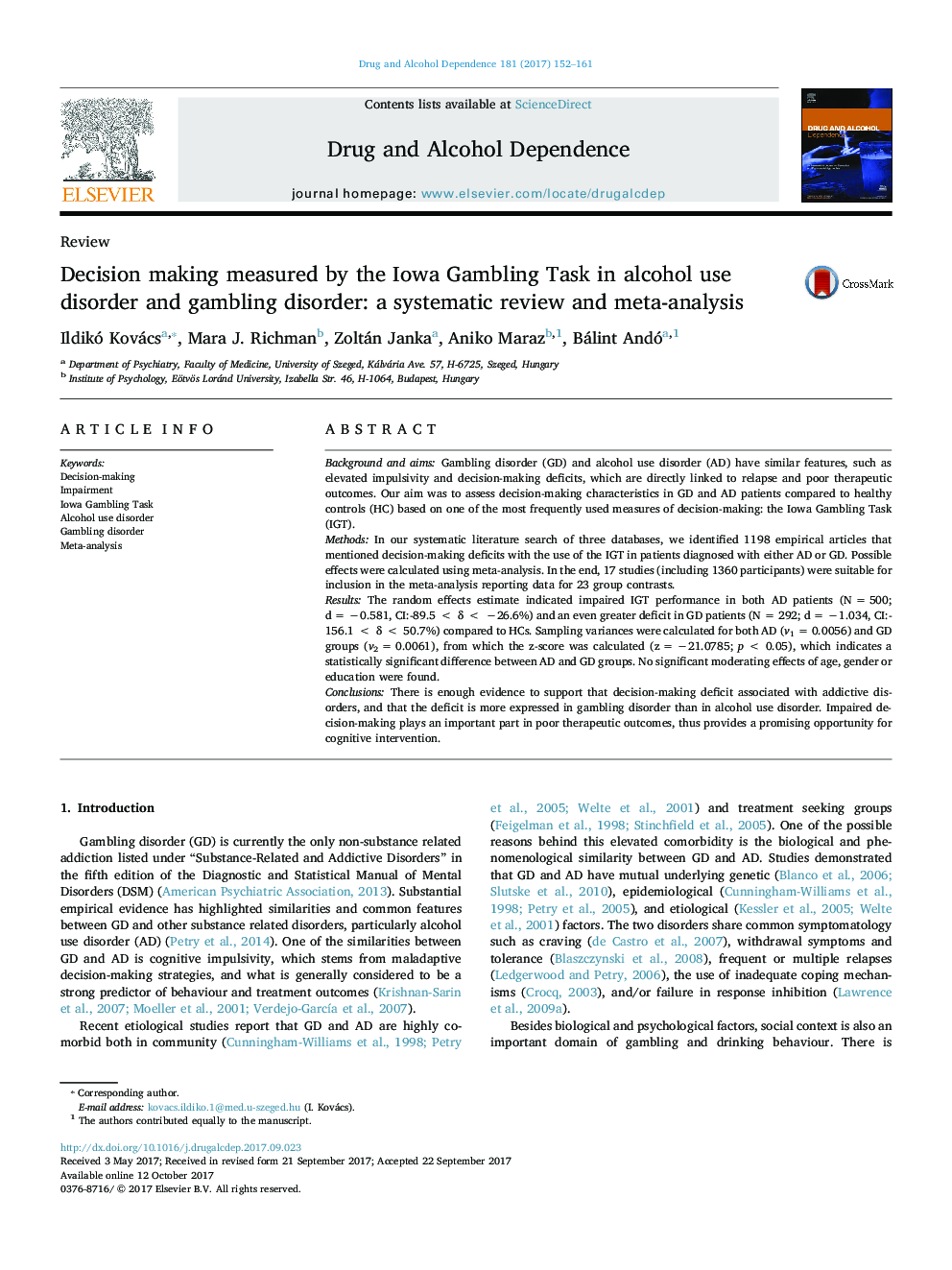| کد مقاله | کد نشریه | سال انتشار | مقاله انگلیسی | نسخه تمام متن |
|---|---|---|---|---|
| 5119899 | 1486110 | 2017 | 10 صفحه PDF | دانلود رایگان |
- This meta-analysis gives further proof for decision-making deficits in both alcohol use disorder (AD) and gambling disorder (GD).
- Impaired decision making is not linked to substance use itself, but rather to addictive behaviour.
- Decision making deficit is more expressed in GD than in AD.
- Knowledge of decision making deficits in AD and GD may help refine treatment options.
Background and aimsGambling disorder (GD) and alcohol use disorder (AD) have similar features, such as elevated impulsivity and decision-making deficits, which are directly linked to relapse and poor therapeutic outcomes. Our aim was to assess decision-making characteristics in GD and AD patients compared to healthy controls (HC) based on one of the most frequently used measures of decision-making: the Iowa Gambling Task (IGT).MethodsIn our systematic literature search of three databases, we identified 1198 empirical articles that mentioned decision-making deficits with the use of the IGT in patients diagnosed with either AD or GD. Possible effects were calculated using meta-analysis. In the end, 17 studies (including 1360 participants) were suitable for inclusion in the meta-analysis reporting data for 23 group contrasts.ResultsThe random effects estimate indicated impaired IGT performance in both AD patients (N = 500; d = â0.581, CI:-89.5 < δ < â26.6%) and an even greater deficit in GD patients (N = 292; d = â1.034, CI:-156.1 < δ < 50.7%) compared to HCs. Sampling variances were calculated for both AD (v1 = 0.0056) and GD groups (v2 = 0.0061), from which the z-score was calculated (z = â21.0785; p < 0.05), which indicates a statistically significant difference between AD and GD groups. No significant moderating effects of age, gender or education were found.ConclusionsThere is enough evidence to support that decision-making deficit associated with addictive disorders, and that the deficit is more expressed in gambling disorder than in alcohol use disorder. Impaired decision-making plays an important part in poor therapeutic outcomes, thus provides a promising opportunity for cognitive intervention.
Journal: Drug and Alcohol Dependence - Volume 181, 1 December 2017, Pages 152-161
